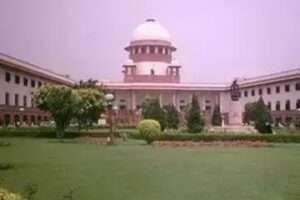NDPS Act | Statement Of Police Witnesses Cannot Be Discarded If They Inspire Confidence: Punjab & Haryana High Court
Case: Joginder Singh v. State of Haryana
Coram: Justice Anoop Chitkara
Case No.: CRA-S-1472-SB-2002
Court Observation: “It is indisputable that the investigator and his superior officer neither associated nor tried to join any independent witness or rendered any explanation. An analysis of judicial precedents would be necessary to determine the effect of such lapse, admissibility of testimonies of police officials, and prejudice caused to the accused,”.
“From the evidence which has come on record, it is quite clear that the place, where the accused is alleged to have been apprehended, cannot be said to be an isolated one as the house of Govind Singh DW-2 is situated on the edge of Patarna bridge. Thus the version of the complainant PW-6 that independent witnesses could not be associated as it was an isolated place does not inspire confidence.”
“if the witnesses are not accomplices, what then is their position? There is no doubt that when a criminal Court has to appreciate evidence given by witnesses who are partisan or interested, it has to be very careful in weighing such evidence. But it would, we think, be unreasonable to contend that evidence given by witnesses should be discarded only on the ground that it is evidence of partisan or interested witnesses.”
“It further added that Judicial approach has to be cautious in dealing with such evidence. “We cannot forget that it may not be possible to find independent witness at all places, at all times. Ordinarily, the public at large show their disinclination to come forward to become witnesses.”
“It is settled law that the testimony of official witnesses cannot be rejected on the ground of non-corroboration by independent witness; it is desirable to examine independent witness, however, in the absence of any such witness, if the statements of police officers are reliable and when there is no animosity established against them by the accused, conviction based on their statement cannot be faulted with [Sumit Tomar v. State of Punjab, (2013) 1 SCC 395, [Para 3],”.
“While the Indian Evidence Act 1872 does not explicitly provide a definition for a witness, the definition of ‘Fact’ elucidates an understanding that a witness is one who perceives, infers, or possesses knowledge of a given fact. It is in the trial that elements of bias, prejudice, and interest are assessed, and resultantly, the admissibility and quality of the evidence are evaluated. A witness is a person who, based on their conscious observation or experience, has relevant knowledge of the happening or non-happening of an event and states or testifies about it. The job of a Judge is to mine and refine the truth,”.
Previous Posts
Keywords
NDPS Act | Statement Of Police Witnesses Cannot Be Discarded, Punjab & Haryana High Court




